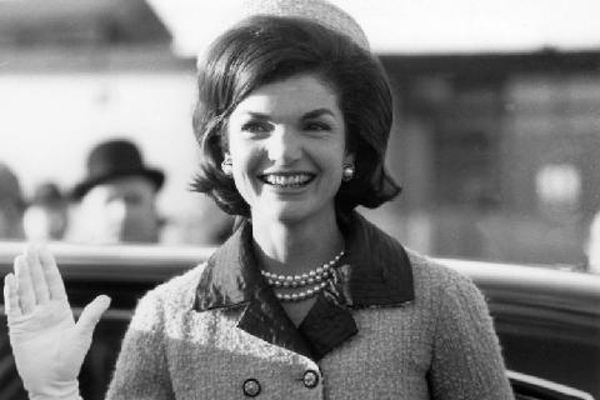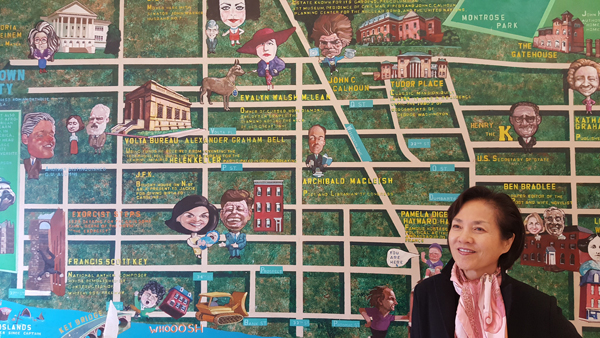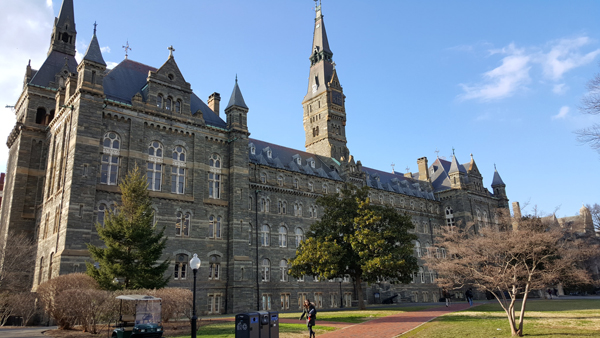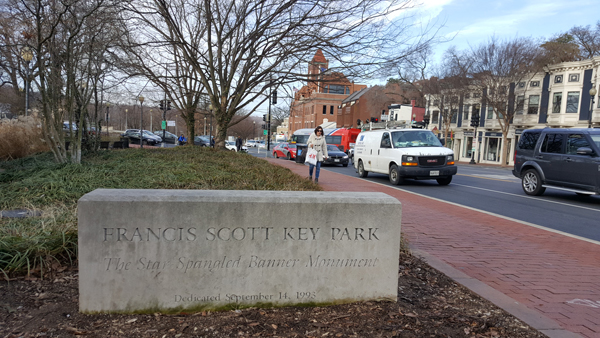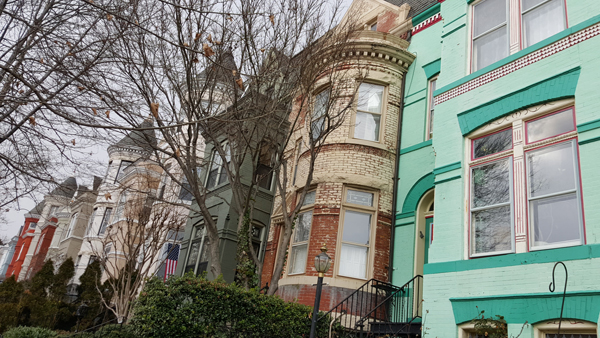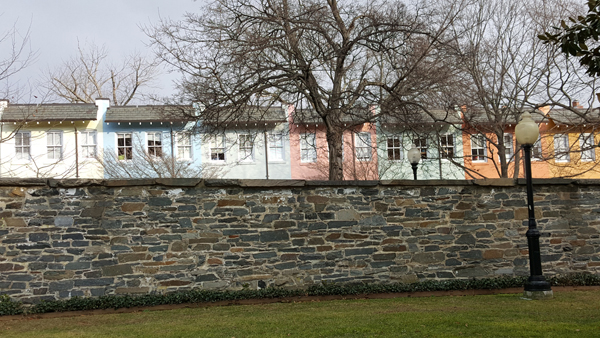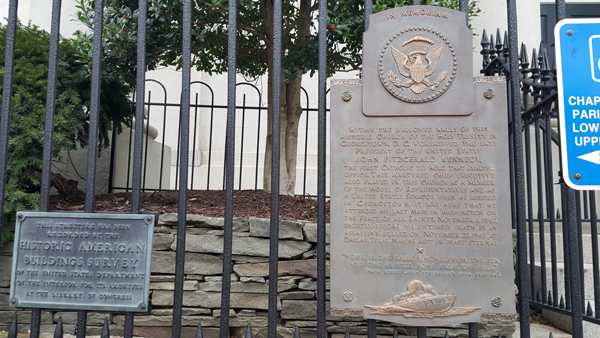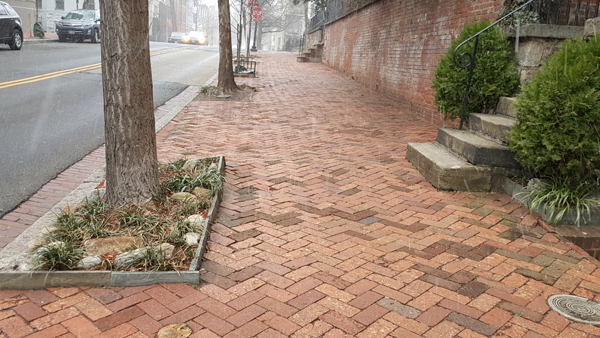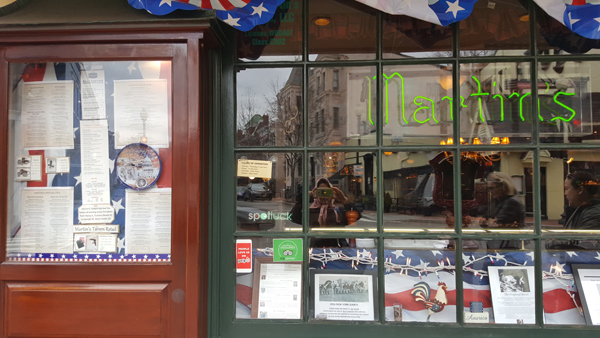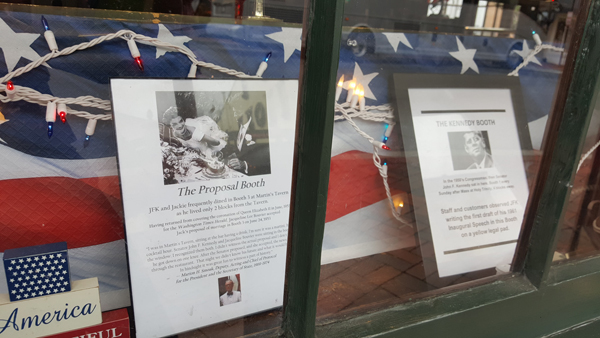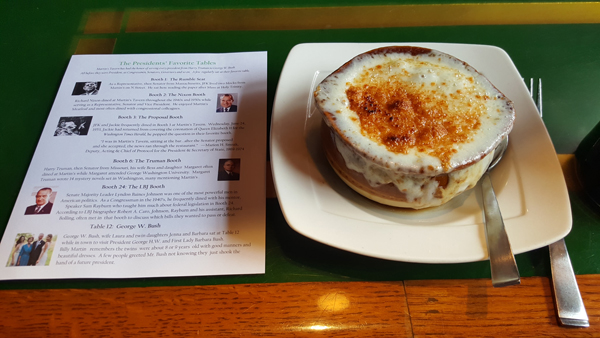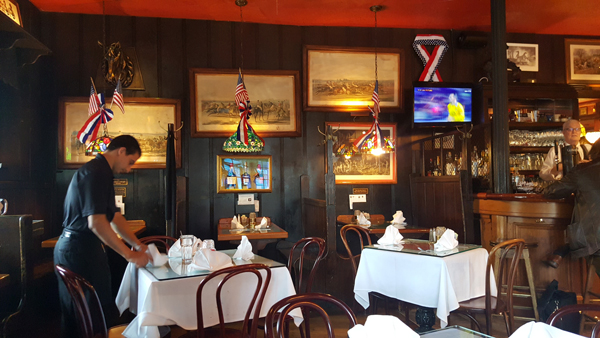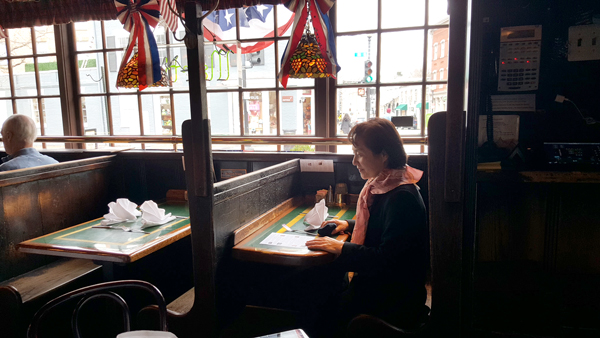Jackie 1963 March 23, 2017
Woman of Class
I recently watched a movie, Jackie. When most of the theaters were taking down the movie, I went all the way, transferring subway lines several times, to find a theater that was still screening it, remembering the recent encounter with her daughter, Caroline Kennedy. While the movie from long time ago, Jacqueline Bouvier Kennedy, starring an actress named Jaclyn Smith, depicts the private life of Jackie who got married to Onassis, this movie, Jackie, portrays the three days following the assassination of JFK, from his death in Dallas to the funeral, in the format of an interview with a journalist.
I do not intend to criticize its cinematic quality. I was just happy to get to know what I had been curious about. I watched the news on Kennedy's sudden death in 1963 only on TV. In this movie, however, I could see what she must have felt when she witnessed the appalling scene of her husband's death and when she was looking down at President Johnson repeating the oath at the inaugural ceremony, standing inside the plane in her pink suit smudged with the blood from holding Kennedy's head in her lap. I could also catch sight of her traumatic moments of losing her husband out of the blue, losing the White house that she had renovated for three years, as well as losing her "throne" of the First lady all at once.
After I graduated college in Seoul, my father took a tour with me to Hawaii, San Francisco, Minnesota, Michigan, Chicago, New York, and Boston, and he went back to Seoul after dropping me off at Georgetown University in Washington. I was glad that I found Georgetown charming. Because it was the time when I could not even conceive the idea of travelling to another city all by myself.
Georgetown is a neighborhood located in northwest Washington, D.C., close to the White House and just over the Francis Scott Key Bridge across the Potomac River, to the neighboring state of Virginia. While the history of the young United States is 241 years long, that of Georgetown is ca. 400 years long, which fills up this historical and intellectual neighborhood with a beautiful cultural heritage.
Then there is historic Georgetown University. Once it became a world topic that the former president Clinton, who had completed his undergraduate studies there, greeted diplomatic delegations from all over the world as the first event of his presidency. As it is a Catholic and Jesuit-affiliated institution of higher education, there were a lot of professors who are also Jesuit priests.
My major was sociolinguistics and one of my professors was Jesuit priest, Father Sara, with a shrill voice. Once he described Jackie's voice as husky. At that time, Ford was the president and Kennedy’s presidency was over, but the Kennedy-era must have been imprinted strongly in the minds of Americans. Especially, Jackie is still well-remembered by many Americans. Then, there was a popular TV program in black and white, in which Jackie was showing around and introducing the White house for the first time. Father Sara meant Jackie's voice he heard from the scenes in that show.
Since then, I had always been wondering about her actual voice, but I did not have any chance during those pre-YouTube old days. After several decades, I finally got to hear her voice in this movie, Jackie.
What also makes me curious is Jackie’s mentioning of the musical Camelot associated with the Kennedy era. After stepping down from the role of the First Lady, the world’s media competed to have an interview with her. After a while, Jackie’s choice was Life magazine. Her first condition was impressive, “I will edit the story myself.” It meant that she did not like what journalists usually wrote, adding and deleting in their own will. She must have experienced and suffered from such distorted news more than enough by then and she wanted to be a journalist herself.
Separated from her grief on her husband’s death, she revealed her desperate hope to set her husband as an "ideal" in history. When she was asked how she would want people to remember him, she said, “I do not want them to forget John F. Kennedy or read of him only in dusty or bitter histories: For one brief shining moment there was Camelot.” That was her memory of the musical Camelot, she used to listen to every evening with her husband at the White House.
In the midst of despair, Jackie’s decision to leave a clear imprint of what Kennedy symbolizes created today’s myth of the Kennedy family. Her choice of directing a ‘storytelling’ which is one of the most powerful tools, was ahead of her time.
By the means of that myth, the charm of the Kennedy family, romantic, intellectual and unique, has been brooded. It was Jackie’s contribution. It made me think, once again, how important it is for a man to have a good wife. After the interview, the journalist reportedly said “The world will remember your grace and dignity. They will remember you more than anything"
I remember when someone later asked the veteran journalist to describe Jackie in three words, his answer was “Woman of Class” which made me nod my head.
After attending Trump’s inauguration ceremony, a few of my accompanies left Washington right away but I stayed a few days longer, for I could not take off from the city I used to live for such a long time. Although there were so many other places I could have visited, I went to Georgetown four times.
The campus looked the same, but there were many new buildings. There was no dormitory at that time and I used to have a hard time finding a flat. Once I had to commute all the way from the other side of the river, Cristal City in Virginia. Fortunately, there are many dormitories on campus now.
I went to see my old seat at the library, where I used to study everyday looking upon the Potomac River and visited the main building where I shook hands and conversed with the vice-president Rockefeller after his speech. I entered the Edmund Walsh building where I used to study with Father Sara and quietly sat down. For others it could just be a regular building or a simple tree. In my own eyes, however, countless memories and reminiscences were dancing around against the blue sky.
Outside the campus, several hundreds of years old townhouses spread out as those in fairy tales do. Stepping on the red brick pavement, I connected with the time of my youth and then I felt uplifted and warm-hearted. In June, the whole town is filled with the fragrance of light yellow honeysuckles. I saw a brick house owned by an old lady, who had three helpers and who volunteered to host foreign students. There, I stayed for the first couple of months after I had arrived at Georgetown. I also saw an alley where a male student used to follow me.
Here and there in this town, there are the house of Kennedy and Jackie, when he was a young Senator, that of Clinton, and that of Elizabeth Taylor who used to be married to a Senator. There is also a house of Henry Kissinger, who was more popular than the president at the time. There was a reporter who used to dig through Kissinger's trashcan everyday and write articles out of his memos. Hearing the market price of that house, which used to be around 50,000 dollars at that time, is currently worth over two million, I briefly regreted that I didn’t buy that house instead of paying my tuition.
On the main street, Wisconsin Avenue, there are many stores, restaurants, galleries, and a bank with a golden dome. Martin’s Tavern is where I could not dare to order main dishes as a poor student back then, but only an onion soup with bread. This time, I had my dinner there three times. I also ordered main dishes. The owner was the same, the eight-dollar onion soup still tastes good, and the welcoming atmosphere never changed. In the middle of Washington, inspiring patriotism as the capital of America, the restaurant was decorated with many American flags and the big flag covering the ceiling was carrying the names of all the victims of 9/11.
Former presidents, Truman, Kennedy, Nixon, Johnson, Clinton, Bush, etc. used to be its regular customers. Small booth seats are numbered as Booth 1, Booth 2 and so forth. A young Senator Kennedy, who used to live only two blocks away, used to come in every Sunday after attending a service at Holy Trinity Church and write his speech at Booth 1. It is known that he also wrote his inaugural speech in 1961 right there. The staff and other customers at this tavern at the time have witnessed Kennedy writing down his speech in the yellow legal pad.
Booth 2 is where Nixon used to sit when he was a senator and a vice-president. Booth 3 is where Kennedy proposed to Jackie. In June, 1953, Jacqueline Lee Bouvier, who had just returned from the coronation of Queen Elizabeth II in London as a reporter of Washington Times Herald, was proposed to by Kennedy in that booth. Now it is called “The Proposal Booth”. In that small space, such a long history and romance are still breathing alive.
The movie, Jackie, even though not directly including any scenes in Martin's tavern, reminds me of the extremely simple “Proposal Booth” and Booth 1 where I was writing this essay from my recent visit.
It is tremendously regrettable to see such a worldly revered myth and romanticism fade away ever since the beginning of the new presidency, regardless of its political capacity.
"Don't ever let it be forgot, that once there was a spot, for one brief shining moment that was known as Camelot"
Remember all the tales of Camelot
from Camelot
A comical mural map indicating the locations of the houses of Kennedy Jackie Clinton Kissinger at a teahouse in Georgetown
The historic main bldg with an assembly hall of Georgetown University -Jan 30 2017
A park named after Francis S. Key who wrote the lyrics to the U S national anthem - W.D.C. Jan 31 2017
An array of townhouse spread out all over Georgetown Washington
Townhouses beyond the wall of Georgetown University - W.D.C. Jan 25 2017
The plate of ‘Historic American Building’ at the church Kennedy used to attend - Georgetown W.D.C.
Old brick pavements all over the Georgetown - Jan 25 2017
The former presidents’ favorite Martin’s Tavern - W.D.C. Georgetown Jan 31 2017
Window decorations indicating Booth 3 is ‘The Proposal Booth’ and Booth 1 is where Kennedy wrote his speech.
A piece of paper noting that it used to be ocuppied by former presidents Kennedy, Nixon, Johnson, Bush, etc. and an onion soup.
American flags decorated in Martin’s, suitable for a capital city inspiring patriotism.
Sitting at the booth where Kennedy used to write his speech, neighboring Booth 2, Nixon’s seat, next to Booth 3 ‘The Proposal Booth’ - Jan 31 2017
|

